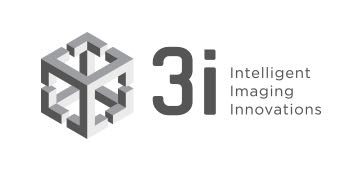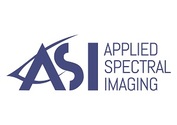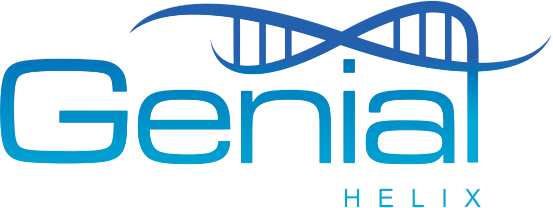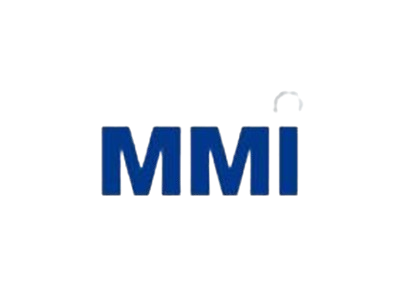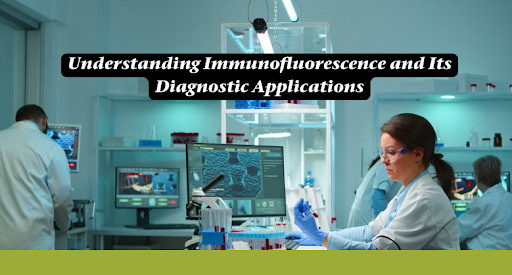DSS: Redefining Biotechnology & Life Science in India
- About Us
- Products & Services
PRODUCTS & SERVICES
-
Kits Reagents & Consumables
- Cytogenetics
- Dyes
- Fluorescence In Situ Hybridization (FISH)
- High-Performance Liquid Chromatography (HPLC)
- Histology
- Immuno Histo Chemistry (IHC)
- Molecular Pathology & Diagnostics
- Multiplex Ligation-Dependent Probe Amplification (MLPA)
- Nucleic Acid Extraction
- PharmDx
- Real Time PCR
- Sequencing
- Special Stains
-
Instruments
- Biosafety
- Cameras
- Cell Culture monitoring
- CO2 Incubator
- Cytogenetics Systems
- Digital Slide Scanners
- Electrophysiology Systems
- Endoscopy System
- Fluorescence In Situ Hybridization (FISH)
- H&E
- Immuno Histo Chemistry (IHC)
- Microfluidics
- Microscopes
- Molecular Pathology & Diagnostics
- Multichannel Imaging Systems
- Real Time PCR
- Special Stains
- Software
- Accessories
- Advanced Material
-
Kits Reagents & Consumables
- Applications & Specialities
All Applications & Specialities
- Brands
- Contact Us
-

-
 0
0
- ☰
- About Us
- Products & Services
-
Kits Reagents & Consumables
- Cytogenetics
- Dyes
- Fluorescence In Situ Hybridization (FISH)
- High-Performance Liquid Chromatography (HPLC)
- Histology
- Immuno Histo Chemistry (IHC)
- Molecular Pathology & Diagnostics
- Multiplex Ligation-Dependent Probe Amplification (MLPA)
- Nucleic Acid Extraction
- PharmDx
- Real Time PCR
- Sequencing
- Special Stains
-
Instruments
- Biosafety
- Cameras
- Cell Culture monitoring
- CO2 Incubator
- Cytogenetics Systems
- Digital Slide Scanners
- Electrophysiology Systems
- Endoscopy System
- Fluorescence In Situ Hybridization (FISH)
- H&E
- Immuno Histo Chemistry (IHC)
- Microfluidics
- Microscopes
- Molecular Pathology & Diagnostics
- Multichannel Imaging Systems
- Real Time PCR
- Special Stains
- Advanced Material
- Software
- Accessories
-
Kits Reagents & Consumables
- Applications & Specialities
- Brands
- Brand - Life Sciences
- 3i
- ABBERIOR INSTRUMENTS
- Abbott Molecular
- ADS Biotec
- APPLIED SPECTRAL IMAGING
- BioAir Tecnilabo
- DAKO (AGILENT)
- Eden Tech
- Elveflow
- ENTROGEN
- EUROCLONE
- EVIDENT
- Genea
- Genial Helix
- Hamamatsu Photonics
- Invivoscribe
- MASTER DIAGNOSTICA
- MBF BIOSCIENCE
- Medical Tek Co. Ltd
- MILESTONE MED SRL
- Molecular Machines & Industries
- MRC HOLLAND
- NeoDx
- Onward Assist
- PHOTOMETRICS
- Profound
- SCIENTIFICA
- µCyte
- Brand - Industrial
- Brand - Life Sciences
- News & Events
- Career
- Contact Us
- Testimonial
- Blog
- R&D
- CSR

Advancements in Oncology Diagnostics: The Power of Precision Medicine
BY DSS Imagetech Pvt Ltd November 20, 2024
The field of cancer diagnostics has changed throughout time as a result of advances in science and technology. Innovative techniques have been added to established techniques, such as biopsies and imaging scans, to provide a more thorough evaluation of cancer. These developments have cleared the way for precision medicine, which strives to deliver personalized treatments based on the molecular profiles of specific patients.
This blog illustrates the transformational potential of precision medicine while exploring the fascinating developments in cancer diagnosis.
Explaining Precision Medicine
One of the most promising methods for combating diseases for which there are now no viable therapies or cures is precision medicine, often known as personalized medicine. People, families, and whole civilizations suffer greatly as a result of cancer, neurological illnesses, and unusual genetic abnormalities. Precision medicine often depends on most of the following factors:
- Biomarkers: Precision medicine uses biomarkers, which are biological indicators, to precisely characterize a patient’s genotype—or genetic makeup—and phenotype—or physical characteristics—as well as their risk for developing specific illnesses and/or therapy responses.
- Genetic factors: The development of next-generation DNA sequencing technology has transformed how human genetics is used in pharmaceutical research and development by making it possible to analyze genotypes in more depth concerning certain phenotypes. This has led to a multitude of novel therapeutic targets and biomarkers as well as previously unheard-of insights into the genetics of human illness.
- Technologies for Deep Phenotyping: To find and verify new biomarkers and treatment responses, phenotyping technologies enable a deeper knowledge of human physiology and illness in unprecedented depth. These include electronic indicators like actigraphy (the real-time tracking of patient mobility using mobile sensors), microbiome profiling, flow cytometry, and high throughput omics technologies (such as transcriptomics, proteomics, and metabolomics).
- Digital precision medicine: The use of digital biomarkers to define more exact outcome measurements and clinical research objectives is becoming more and more important. These can involve, among other things, actigraphy, voice-recorded mood and illness progression, cognitive exams performed as games on tablets, and actigraphy.
- Information technology for health: Systems that assist in gathering, storing, and analyzing enormous volumes of health data, with an emphasis on linking phenotypic and genotypic data (often referred to as “big data”), are known as health information technology platforms.
Precision Medicine Revolutionizing Cancer Diagnosis and Treatment
A new age of personalized healthcare is being ushered in thanks to precision medicine, which is changing the way cancer is diagnosed and treated. Standardized treatment regimens and wide categorizations were key components of conventional cancer diagnosis techniques. However, with the development of precision medicine, oncologists are now better able to devise tailored medicines by delving into a patient’s specific genetic makeup, lifestyle choices, and tumor features.
The capacity to pinpoint certain genetic abnormalities or biomarkers that promote the development and metastasis of cancer cells is the key to precision medicine. These abnormalities may be identified by researchers using cutting-edge genome sequencing tools, and treatment strategies can be adjusted accordingly. With this method, oncologists can choose treatments with a better chance of effectiveness and a lower risk of negative effects.
Furthermore, precision medicine has enormous promise for the early identification of cancer. It is now feasible to identify people who may have a higher risk of acquiring particular forms of cancer by looking at their genetic profiles. Early intervention and preventative actions are made possible by this proactive strategy, improving outcomes and raising survival rates.
The Function of AI in Oncology Treatment
The development of artificial intelligence (AI) is transforming the area of Oncology Diagnostics by introducing new tools for cancer detection, personalized therapy, patient management, and other tasks. Given the high number of cancer diagnoses and the volume of data generated during cancer therapy, interest in using AI to enhance oncologic care is growing and has promise.
Some of the most prominent applications of AI in the field of oncology treatment are as follows:
- AI employs bounding boxes to discover a lesion or item of interest and classify it, such as lung nodules or brain metastases on MRI readouts. AI-based detection helps doctors interpret medical photos.
- Mammography screening for patients with breast cancer has been enhanced by merging AI and human power. Deep learning models were also developed to categorize and identify illness subtypes based on genetic information and visual data.
- AI has the potential to fundamentally alter how cancer patients are tracked. It is capable of detecting several distinguishing characteristics in imagery that are invisible to humans.
Precision Imaging Techniques
By giving precise and accurate pictures of the tumor and surrounding tissues, precision imaging methods have completely changed the way that cancer is diagnosed.
These methods, which include computed tomography (CT), positron emission tomography (PET), and magnetic resonance imaging (MRI), provide exact visualization of the tumor’s location, size, and features. Healthcare practitioners may detect early-stage tumors, find metastases, and evaluate the efficacy of therapy by employing modern imaging equipment. The visualization of certain Molecular Diagnostics targets in cancer cells is made possible by molecular imaging methods, such as PET scans with radiotracers, which support the choice of an individualized treatment plan.
In order to assess the genetic makeup of the tumor and direct treatment choices, image-guided biopsies require the use of precise imaging tools, which make it possible to take targeted tissue samples.
Future Prospects
Here are some of the future directions of precision medicine in oncology treatment:
- More patients may benefit from a less intrusive, more focused, and more foresighted approach to therapy in the future thanks to precision medicine.
- For all parties involved in healthcare, precision medicine may act as a compass, pointing out roadblocks, offering specialized solutions, and lighting the future path.
- Healthcare expenses can be decreased by eliminating unneeded differences as precision medicine develops, and more patients may have access to personalized therapies.
Precision medicine is poised to continue revolutionizing the industry, enhancing patient outcomes, and eventually paving the way for a world where cancer may be successfully avoided, identified, and treated with the help of continuous research and technology advancements.
Conclusion
By considering a larger and deeper variety of data about each patient, precision medicine can help cancer be recognized early and with far better accuracy. Finding the best therapies for certain malignancies might be useful. Furthermore, it can steer many people away from expensive and difficult cancer treatments and towards less expensive, more convenient, and more effective alternatives. However, there are lots of challenges to overcome, such as high costs, less awareness, and a shortage of skilled workforce. Developing countries are still in the early stages of adopting precision medicine in their treatment procedures. DSS Image Tech supports this transformative approach by offering advanced diagnostic tools that enhance the accuracy of cancer detection, enabling better outcomes. With the right solutions and efforts to address these challenges, the future of precision medicine looks very bright.
Latest Articles
Understanding Immunofluorescence and Its Diagnostic Applications
BY admin March 25, 2025
Immunofluorescence testing ranks among medicine’s most reliable diagnostic tools, especially when detecting autoimmune diseases. The sensitivity rates reach 100% for certain conditions. Medical professionals have managed to keep this technique at the heart of diagnostics since 1942. It provides exceptional accuracy in identifying diseases in multiple organ systems. The immunofluorescence...
Read MoreLiquid Biopsy: A Non-Invasive Approach to Cancer Detection
BY admin March 25, 2025
Cancer is the second leading cause of death worldwide. This grim statistic highlights the need to save lives through better detection methods. We have a long way to go, but we can build on this progress in cancer diagnostics, where liquid biopsy stands at the vanguard of medical advancement. Liquid...
Read MoreEnhance Genetic Testing with Advanced FISH Instruments from DSS Imagetech
BY admin March 18, 2025
One of the most revolutionary techniques of modern molecular biology and genetics, fluorescence in situ hybridization is a precision-based technique known widely for use in genetic diagnostics and research, helping to determine chromosomal anomalies, gene mutation, and many more genetic markers. DSS Imagetech is a trusted company dealing with biotechnology...
Read More
